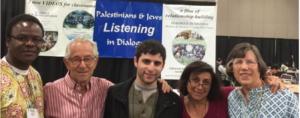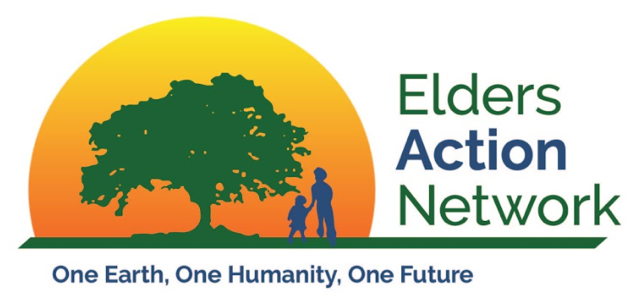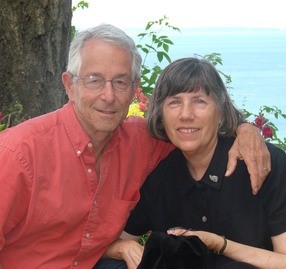
In our mid-70s, we are redefining the meaning of retirement. Many of our recent ancestors lived out their lives with shrinking world views and diminishing self-importance. Seeking comfort, they passively abdicated the joy of responsibility, “leaving it to the next generation.”
Our fellow elders often ask: “What are our options?” For the two of us, it is participating as fully as possible—giving back our time-tested skills, wisdom, attention, and energy to cure the needful social and environmental sicknesses threatening our human community and Earth herself.
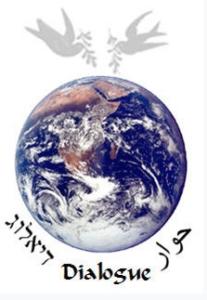 At the root of humankind’s interconnected crises is people’s inability to understand our oneness, our inextricable interdependence with each other and nature. In response, we two spend our days and nights clarifying that killing, destroying, humiliating, distancing, and excluding others at home, on campus, or among nations will never provide the safety and cooperation we seek. Only acts of goodwill and communication excellence—love—can succeed. So we spend our retirement years facilitating lots of diverse women, men, and youth in face-to-face Dialogue to listen and be listened to. Educator Gene Knudsen Hoffman describes the experience: “An enemy is one whose story we have not heard.”
At the root of humankind’s interconnected crises is people’s inability to understand our oneness, our inextricable interdependence with each other and nature. In response, we two spend our days and nights clarifying that killing, destroying, humiliating, distancing, and excluding others at home, on campus, or among nations will never provide the safety and cooperation we seek. Only acts of goodwill and communication excellence—love—can succeed. So we spend our retirement years facilitating lots of diverse women, men, and youth in face-to-face Dialogue to listen and be listened to. Educator Gene Knudsen Hoffman describes the experience: “An enemy is one whose story we have not heard.”
Our primary approach is through the Jewish-Palestinian Living Room Dialogue, which we co-founded in our home in 1992, far before day-job “retirement.” The principles and successful practices we’ve developed and experienced in that setting are spreading to all continents to help people in conflict engage face-to-face, experience their common humanity, and to reconcile. Recently, the initiative earned its place in Wikipedia, the international online encyclopedia.
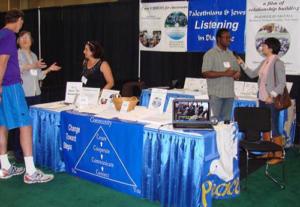 In October 2015, we hosted a booth at the Parliament of the World’s Religions in Salt Lake City, Utah. Nearly 10,000 people attended this event, which is held every five years in different parts of the world. For five intense days, under the banner “Palestinians and Jews Listening in Dialogue,” we co-hosted the booth with Palestinian Raeda Ashkar and Nigerian Charles Obiorah Kwuelum. Many of the hundreds of booth visitors wept in gratitude for our stories of successful human reconciliation, how-to communication tools, and the thousand DVDs of our documentary films that we gifted. Photos tell the story.
In October 2015, we hosted a booth at the Parliament of the World’s Religions in Salt Lake City, Utah. Nearly 10,000 people attended this event, which is held every five years in different parts of the world. For five intense days, under the banner “Palestinians and Jews Listening in Dialogue,” we co-hosted the booth with Palestinian Raeda Ashkar and Nigerian Charles Obiorah Kwuelum. Many of the hundreds of booth visitors wept in gratitude for our stories of successful human reconciliation, how-to communication tools, and the thousand DVDs of our documentary films that we gifted. Photos tell the story.
Were we tired at the end of the five days? Was packing and unpacking many boxes of our freely-given materials exhausting? Did we learn about ourselves and others while engaging with fellow attendees? Was the effort worth it? Did we take a few days off afterward to rest? Absolutely yes!
